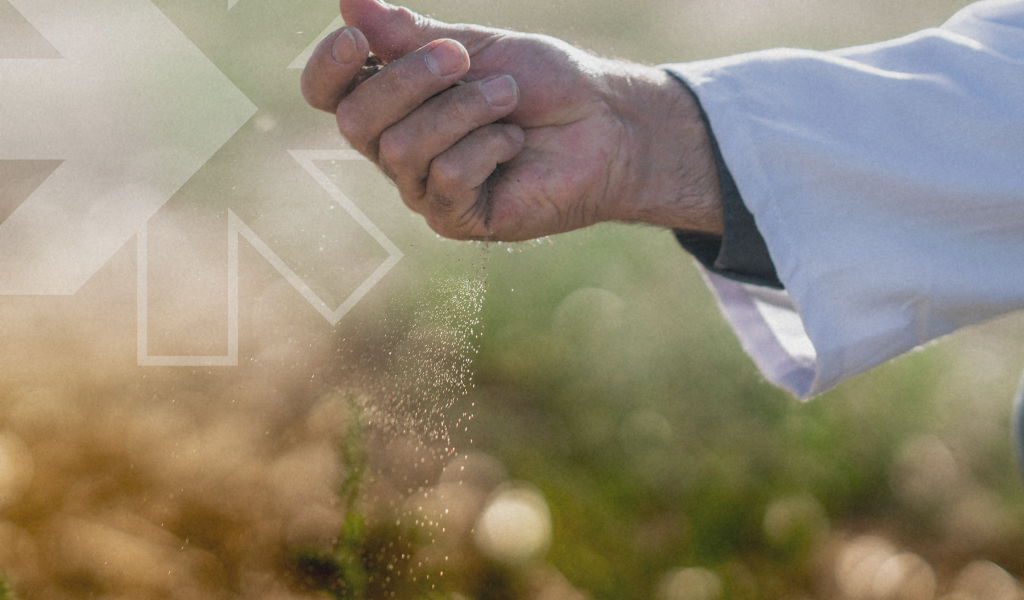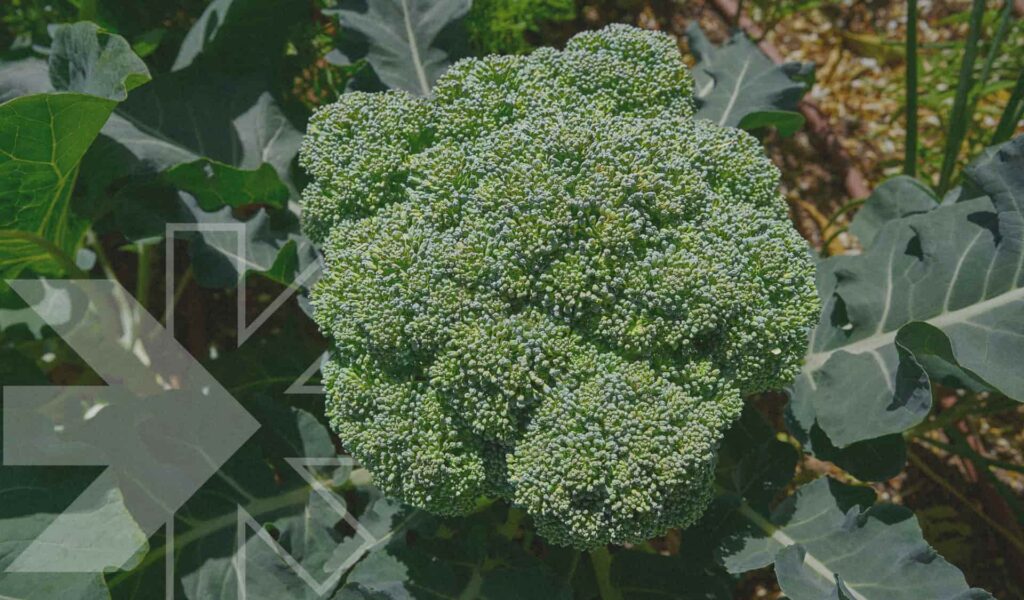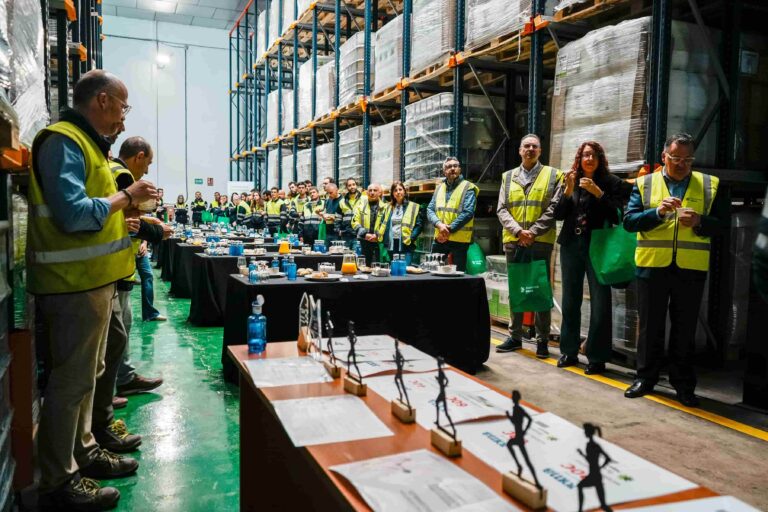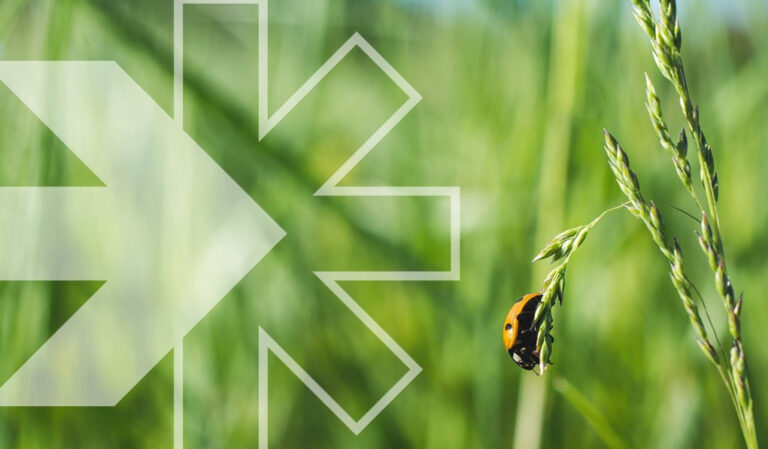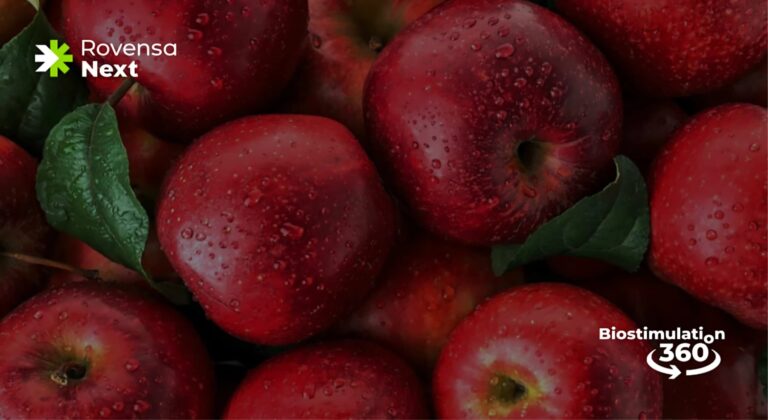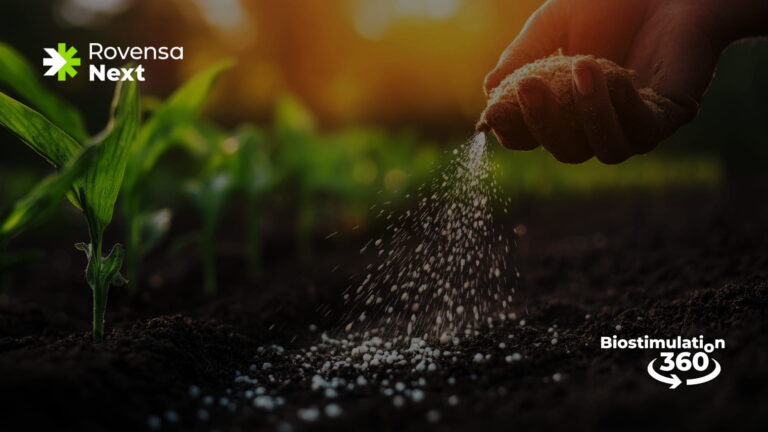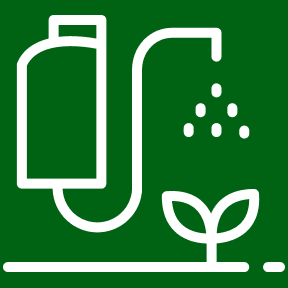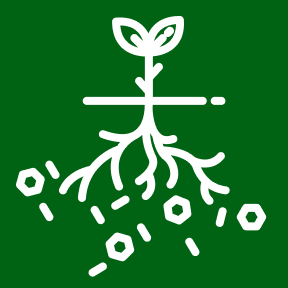What is soil salinity and sodicity in agriculture and how does it affect crops?
Soil salinity and sodicity in agriculture are prevalent conditions that refer to the accumulation of soluble salts, such as sodium, chlorides, sulfates, and carbonates, in the soil, which can have serious consequences for plants. When soil salt levels are high, they hinder plants from absorbing water and nutrients, affecting their growth and development. Additionally, salinity can cause imbalances in the soil and damage soil structure, making it even more difficult for plants to grow. In this article, we will explore how soil salinity and sodicity in agriculture affect crops and what strategies can be employed to manage this challenge in modern agriculture.
Causes of salinity
- Use of Na+ containing fertilizers
- Intensive irrigation and a high evaporation rate which maintains a high-water table.
- High evaporation prevents the leaching of salts which build up and remain around the root zone.
Consequences of salinity
To the soil:
- Soil structure degradation
- Clay dispersion and leaching: reduction of workability, reduction of porosity
- Quick increase of pH: micronutrient deficiencies (blockage)
- Toxicity of several heavy metals
- Sterility and severe reduction of soil microbiota
To the plants:
- Reduced water absorption
- Abiotic stress
- Germination problems
To the grower:
- Difficult / impossible cropping
- Yield and quality losses
- Reduced Profit
- Continuous soil degradation and fertility lowering soil quality
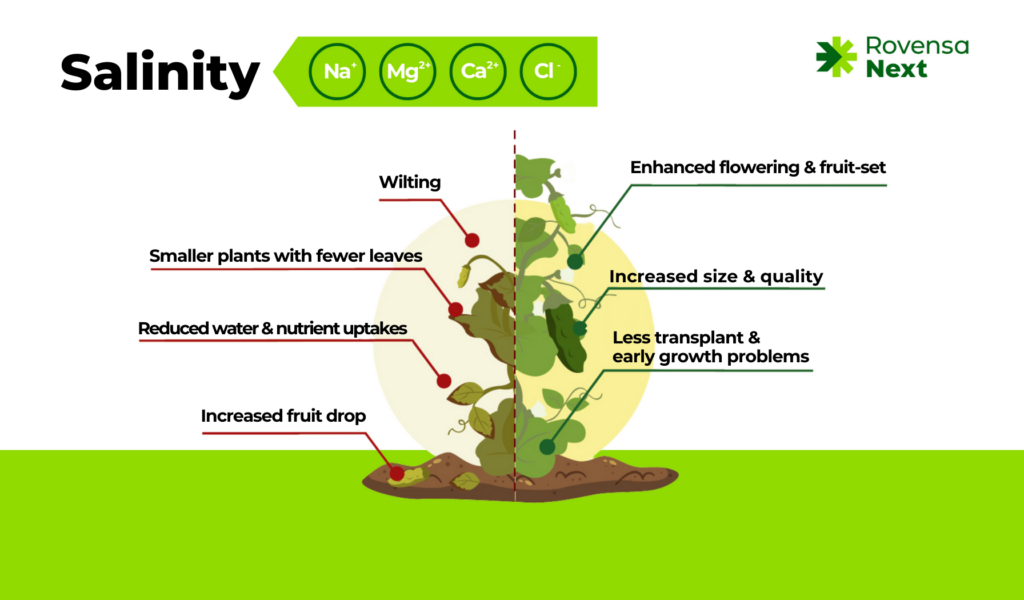
Salinity in agriculture: a type of abiotic stress
Salinity and sodicity present big challenges for farmers worldwide, impacting approximately 25-35% of agricultural lands globally. These abiotic stresses significantly hinder crop growth and yield, necessitating effective management strategies to mitigate their detrimental effects.
Abiotic stress refers to adverse conditions or factors that occur in the environment and affect plant or crop growth and development, without the direct involvement of other living organisms. This lack of involvement of other living organisms in abiotic stress, be it insects, diseases or weeds is a fundamental defining concept when we talk about abiotic stress. The lack of involvement of these “living” organisms has practical, as well as legal implications, when it comes to the definition of product types, both in terms of crop agronomic programs, as well as national legislation that categorise different types of agronomic products into different categories.
Referring to salinity, the implications for crop yields and food security are profound, as high soil salinity levels hinder plant growth and nutrient uptake, resulting in reduced productivity, inferior yield, and decreased profitability. Furthermore, salinity exacerbates soil erosion, compromises water quality, and poses a threat to the long-term sustainability of agricultural ecosystems.
High salt levels in irrigation water and soil can severely impact crop productivity and soil health, leading to reduced yields and diminished profitability. Salinity affects most of crops, with salt-sensitive varieties particularly vulnerable to its detrimental effects. Despite implementing traditional management practices like gypsum application, the problem persists, undermining the sustainability of agricultural systems.
The solution: Rovensa Next salinity and sodicity biosolutions strategy
The success of the Rovensa Next strategy in managing salinity and sodicity lies in its comprehensive approach, addressing key aspects of plant health and stress management. Here’s how the components contribute to its effectiveness:
- Phylgreen: With its unique Primactive effect, Phylgreen enhances stress resistance in plants by stimulating gene signaling pathways. This activation triggers the production of specific proteins that protect against oxidative stress and other harmful effects of salinity and sodicity. By bolstering the plant’s innate defense mechanisms, Phylgreen reinforces its ability to thrive in saline environments and optimize yield potential.
- Humistar WG: This product promotes increased root growth, which is crucial for nutrient uptake and overall plant health. By enhancing root development, Humistar WG improves the plant’s ability to access water and nutrients in saline soils, thus mitigating the negative effects of salinity stress on crop growth.
- Saltrad: Salinity stress often arises from high levels of sodium in the soil, which can disrupt water balance and nutrient uptake in plants. Saltrad plays a vital role in replacing sodium with calcium in the root zone, helping maintain proper water dynamics and nutrient absorption. By mitigating sodicity effects, Saltrad contributes to improved crop performance in saline conditions.
- Delfan Plus: This product provides essential nutrients and bioactive compounds that support plant growth and stress resilience. By supplying extra energy to the plant, Delfan Plus helps maintain growth rates and metabolic functions even under high-stress conditions. Additionally, its bioactive ingredients contribute to the production of secondary metabolites that enhance the plant’s ability to withstand salinity and sodicity stress.
By integrating these specialized products into a comprehensive management strategy, Rovensa Next provides growers with effective solutions for combating salinity and sodicity stress, ensuring sustainable crop production and profitability in challenging agricultural landscapes.
Enhancing crop yield and quality: the impact of Rovensa Next’s holistic approach
The results: yield increase and quality improvement
The implementation of the Rovensa Next strategy led to significant improvements in both crop yield and quality, ensuring return on investment (ROI). By fostering increased root growth and enhancing stress tolerance, the treated crops exhibited higher yields and better-quality produce compared to the control group. Yield increases of up to 38%* were observed, accompanied by improvements in head size distribution and individual head weights, highlighting the strategy’s effectiveness in optimizing crop production and ensuring a positive return on investment. This success can be attributed to the strategic holistic approach, addressing root growth, nutrient dynamics, and stress resistance through regular applications of Phylgreen, Humistar WG, Saltrad and Delfan Plus, thereby mitigating the adverse effects of saline conditions on crop growth and productivity.
* Trial conducted on a broccoli crop in Australia
Partnering with Rovensa Next for biosolutions
In today’s ever-evolving agricultural landscape, Rovensa Next emerges as a reliable partner, offering a comprehensive portfolio of innovative solutions to address salinity, sodicity, and a myriad of other abiotic stresses backed by a team of experts dedicated to supporting growers’ needs. Whether addressing soil health, nutrient management, or stress tolerance, Rovensa Next’s innovative products and personalized recommendations help farmers achieve sustainable and profitable outcomes in challenging agricultural environments.
Our commitment extends beyond mere problem-solving; we also provide cutting-edge solutions in Biocontrol, Bionutrition, and Adjuvants, assisting farmers in tackling their real day-to-day sustainability challenges. From seed to shelf, we accompany farmers every step of the way, enhancing performance, improving quality, and leading the change towards a sustainable future for agriculture.
By partnering with Rovensa Next and leveraging advanced technologies, farmers can enhance soil health, optimize crop performance, and ensure long-term profitability in the face of abiotic stress.
Rovensa Next local teams can help with your results!
Should you have any questions in how to manage salinity and sodicity in your crop, how to better manage Abiotic Stress in general or other agronomic needs, our local team is ready to assist you. Please get in contact with your local representative. Contact us.
References:

